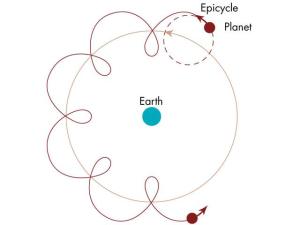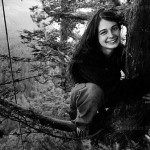The sun also ariseth, and the sun goeth down, and hasteth to his place where he arose. But the earth abideth for ever.
— Ecclesiastes 1
So last night I was going through blog posts that I had saved up to read later and came across this one by Rua Lupa at No Unsacred Place: Colloquial Quandaries: Referencing the Sun. Reading Rua’s posts for me is sometimes like banging my head against the wall. I’m not saying there’s anything wrong with Rua or her writing, of course. She intelligent and articulate. It’s just that our minds work very differently. (Here is another good example at Humanistic Paganism.) In this particular post which got me all riled up, Rua suggests that we need to stop saying that the sun “rises” and “sets”, because it is the earth that is moving, not the sun. Now some people might just dismiss this as linguistic gerrymandering. But one thing Rua and I can agree on is that this is a serious question, because it reflects a certain paradigm.
I was still debating whether to engage this issue, when I walked into my UU discussion group this morning a few minutes late, and what are they talking about? The fact that the sun does not rise and set! I sh*t you not! I’m not sure how that discussion started — I think it had something to do with transcendent experiences — but, as it typical of the group, it quickly got off on a tangent. And then one person after another proceeded to say in effect that our experience of the world is not “real” or “accurate”. Even the people who seemed to value subjective experience took it for granted that their subjective experience was less real than an objective account.
I’ve come across this idea in many forms over the years. I remember being told by someone that we don’t ever really touch anything, because the atoms of our flesh and the atoms of the objects we think we are basic are not actually colliding. In one fell swoop, one of the most powerful human experiences — touch — was reduced to unreality. Or what about the notion that our brains “see” everything upside down because out eyes send an inverted image to our brain and then our brain reverses it. Or how about the time somebody told me that I wasn’t really dreaming in color. My mind was just adding the color. Huh? And then another one I heard today in the group: The sun isn’t really setting when we think it is, because it takes the light 7 minutes to travel to earth. There’s something all of these ideas have in common: the notion that our experience is not real. This denigration of sensory experience is now so common, it is just assumed.
Take for example the idea that the earth revolves around the sun. We laugh at the thought that anyone would think the sun was revolving around the earth. But, in point of fact, that is our most immediate experience of the world: The sun rises east, moves over our heads, sets in the west, and then rises again in the east. But we say that what is “really” happening is the earth is rotating and revolving around the sun. That explanation is the most mathematically parsimonious, because is most easily accounts for the movement of the earth, the sun, and the other celestial spheres. But is it the most “accurate” one? Accurate to what? Certainly not accurate to our everyday experience.
If you read about the history of astronomy, you’ll see that people did have mathematical models that were geocentric. And they worked — for 1500 years people predicted the movement of the planets with the geocentric model. But the Ptolemaic model was complicated.

The helio-centric model was better for scientists, not because it made better predictions (it didn’t), but because it was simpler. But why should mathematical simplicity be given preference over sensory experience when we are deciding what is “real”?
This preference for scientific explanations over our own experience is part and parcel of what Theodore Roszak calls “the myth of objective consciousness”. This myth (meant in the pejorative sense) posits that we get closer to reality the more we remove ourselves from the equation. This myth has given us incredible predictive power and technological control over our environment. But is has also laid waste to our natural and psychological landscapes. According to Roszak, the myth of objective consciousness “raise alienation to its apotheosis as our only means of achieving a valid relationship to reality.”
This is not an anti-science rant. In fact, modern science teaches us about the limits of objectivity. The theory of relativity, for example, supports the view that the earth doesn’t really revolve around the sun any more than the sun revolves around the earth; it all depends on your perspective. If I was standing on the moon neither of those would be consistent with my experience. There is no Archimedean point of objectivity. In addition, subatomic physics has been educating us for some time about the lack of objectivity of our observations. Objectivity is a myth. It is a good myth and it functions well for many things. But it is a myth nonetheless.
Back in Rua’s post, Alison Leigh Lilly responded:
Acknowledging that humans have a particular perspective and that human language will reflect that perspective is not inherently anthropocentric.
Artificially trying to suppress our natural, intuitive relationship with our surroundings by adopting constrained language is unlikely to fix the problem, either, in my opinion.
And that’s my point, Rua’s perspective tries to “suppress our natural, intuitive relationship with our surroundings” in favor of what Rua calls “a better understanding of how the world works”. Although she does not say so, Rua’s use of the phrase “how the world works” here presumes the possibility of an objective account, one which removes us as participants in the act of perception. This is ironic because so much of the writing on the No Unsacred Place blog seems geared toward affirming our participation in the world, even in the very act of perceiving it. See for example Alison Leigh Lilly’s post on earth-centered polytheism here and Lupa’s (not Rua Lupa) post on ecopsychology here.
Rua argues that the geo-centric account of the sunrise and sunset is “ego-centric”. But, actually, I would argue that it is the notion that we can remove ourselves from our situational perspective and achieve Archimedean objectivity that is ego-centric; or at least it is a conceit of the ego. Rua is concerned about human action that neglects other species, but it is the ego that believes it is removed from its natural situation that is more likely to harm the environment than one that is aware of its radical interconnectedness with the world around it.
David Abram puts it well:
“Our civilized distrust of the senses and of the body engenders a metaphysical detachment from the sensible world — it fosters the illusion that we ourselves are not a part of the world that we study, that we can objectively stand apart from that world, as spectators, and can thus determine its workings from outside. A renewed attentiveness to bodily experience, however, enables us to recognize and affirm our inevitable involvement in that which we observe, our corporeal immersion in the depths of a breathing Body much larger than our own.” (David Abram, “Merleau-Ponty and the Voice of the Earth”).
“The belief in a purely objective comprehension of nature, in a clear and complete understanding of how the world works, is the belief in an entirely flat world seen from above, a world without depth, a nature that we are not a part of but that we look at from outside — like a God, or like a person staring at a computer screen.” (David Abram, “Depth Ecology”).
For once I would love to hear someone say, “Oh, that’s just objective“, instead of, “Oh, that’s just subjective.” Subjectivity is not less than objectivity. In fact, I think objectivity is a less complete account of the world that the subjective one. We gain a certain power to control our environment when we attempt to bracket our subjectivity; but we also lose something. We lose the reality of our own experience, and we lose the sense of our own participation in that reality.
Jung wrote, “What most overlook or seem unable to understand is the fact that I regard the psyche as real.” (CW 11, P 751, emphasis original). Jung argued that our subjective experience should be treated as real as objective accounts of the world. This is not the same thing as saying that we should replace objectivity with subjectivity. My experience of the sun rising and setting would probably not help a scientist who was trying to predict the movement of Mars in relation to the Earth. In contrast, I think the scientist’s mathematical calculations might help me to experience to the beauty and transcendence of the sunrise, as I contemplate how the earth is turning with me in the direction of the sun. But it can also get in the way, if in doing so, I imagine myself floating disembodied in outer space, rather than on the very real earth on which I am standing.
Over at Humanistic Paganism, you can find an excerpt of Ursula Goodenough’s The Sacred Depths of Nature in which she describes how her scientific understanding of the universe ruined the night sky for her by reducing it to mere facts and drove her to nihilism, until later, when she rediscovered a sense of wonder at the mystery of it all and the universe became a sacred place to her again. The discoveries produced by scientific objectivity can reveal to us the wondrous depths of nature. But if we value the objectivity of the scientific method over our own experience, then it can diminish that experience, transforming mystery into mechanism. And we are impoverished for it.
ADDENDUM:
In light of Rua’s follow-up post, her response to my original comment on her original post, and some of the comments below, I think it is import for me to emphasize here that I am not at all suggesting that objectivity and science do not have their place, an incredibly important place. They just don’t tell us everything about the world that we are a part of. “Objectivity” has come to be equated in our modern parlance with “true”, while “subjectivity” is equated with “untrue”, and this is unfortunate.
Rua makes the point that, when we expand our perspective above our immediate and local situation, then we perceive both ourselves and the earth in a way that is more ecologically-aware. I absolutely agree. The 1968 “Earthrise photo” taken from Apollo 8 and the subsequent 1972 “Blue Marble” photo from the Apollo 17 mission are credited with helping to launch the environmental movement. There is a reason for this. (Check out this video documenting astronauts’ life-changing stories of seeing the Earth from orbit — a perspective-altering experience often described as the “Overview Effect”.)
As “Zendo Deb” points out in the comments below, without objective science, we would be unaware of global warming. But I think we sometimes need to connect that global perspective with the local appreciation of our destructive way of life on our immediate environment, in our very own backyards. It’s important to experience both perspectives: the global and the local. Perhaps the term “glocal” is appropriate here.
I really have no objection to “Dayturning” and “Nightturning” or any of the other terms that Rua suggests. But I don’t think we should do away with “Sunrise” and “Sunset” because there are not objectively accurate. They are subjectively accurate, and they have value for that reason.
Along these lines, check out this video which includes an excerpt from “A Pale Blue Dot” by Carl Sagan. While Sagan’s point is to emphasize our insignificance (by taking the very, very wide perspective), watching the video (which also shows human life up close) one cannot help but be impressed by our significance, because of our uniqueness (so far as we know). Both are truths that we should always be conscious of.
http://www.youtube.com/watch?v=4PN5JJDh78I















